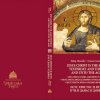In collaboration with Wolfram Research, Miljkovic has been working on sound mapping of the elementary rules from Stephen Wolfram's New Kind of Science. She presented her exploration in this new field at NKS conferences in Waltham, MA, 2004, Washington, D.C., 2006, University of Vermont, 2007, Wolfram Technology Conference, Champaign, IL, 2005, The Musical and Scientific Legacies of Iannis Xenakis, 2006, Toronto, Cambridge Science Festival, 2009-2010, Boston Cyber Festival, 2007-20011, the International Conference on Mathematics and Computation in Music, 2007, Berlin, and Empirics, Computation, Mathematics, Science and Technology in Music and Acoustical Signal Analysis (ECMST ~ MASA), 2010, Berlin, Electronic Music Midwest, Chicago, IL, 2010, First Night, Boston, 2011.
Katarina Miljkovic's works have been performed at major music festivals in her native Yugoslavia, including the Belgrade Music Festivities, BEMUS, Music Biennale and World Festival of Chamber Music in Zagreb, the Rostrum of Yugoslav Music and, at the international festivals in Budapest, Romanische Sommer, Cologne and soundAxis, Toronto. Her Rondo, Sequence for String Orchestra was performed internationally by Belgrade String Orchestra in China, Greece, Hungary, Bulgaria, Italy, Russia, and Great Britain, at venues such as the Beijing Concert Hall, the Moscow Conservatory Big Concert Hall and the Bulgaria Symphony Hall. Miljkovic's work Swifts, for Symphonic Orchestra was performed by the Belgrade Radio Orchestra, the Athens Symphony Orchestra and broadcasted internationally. Her recent collaborative projects include works with Theater Dah from Belgrade, director Vlada Petric, Harvard University, Milan Popovic, video artist, Belgrade, choreographers Dawn Kramer and Stephen Buck, Boston, composer/performer Ko Ishikawa, Japan and percussionist, Peter Negroponte, NYC.
Miljkovic moved to Boston in 1992. She is faculty at the New England Conservatory of Music since 1996 and the recipient of the Louis Krasner and Lawrence Lesser award for excellence in teaching.






